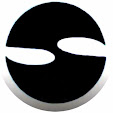It’s still the App Store and the Appstore, for now, Really?
MEMPHIS TN (IFS) -- It was back in the middle 1960's when the smash hit record "Wipe Out" by the Surfaris went into the court system. Before the record was released to then Dot Records which later became ABC/Dot Records, Merrell Fankhauser received all of the credits from the original producer as the writer of "Wipe Out" as the Impacts released it first, one whole year before the Surfaris version.
As the Court granted the writers to the group "The Surfaris" as the sole writers, because of the spelling of the song. "Wipe Out" verses "WipeOut". As the song was exactly the same in opening, verse, chorus, lyric, etc., the court ordered two different versions of the song all because of the spelling. Even though, the songs in questioned were recorded by the same group - The Impacts.
It is stated by then president of Del-Fi Records, Bob Keene that he recorded over seventeen different takes of the same song. When the disgruntled record producer picked another version of the production and formed a new group and called them "The Surfaris" and the rest is history. It took over thirty (30) years for Merrell Fankhauser and the Impacts who released the original "WipeOut" one year earlier to get all of the rights to his song. Just a little note about the legal system and names. -KHS
December 21, 2010 08:00 AM Eastern Time
Father of ‘Wipe Out’ Nominated for Grammy
LOS ANGELES--(BUSINESS WIRE)--A song written and performed by Merrell Fankhauser, father of the iconic surf song “Wipe Out,” has been nominated for a Grammy.
Fankhauser's “Tomorrow’s Girl” is part of a collection of ’60s songs released by Rhino Records titled “Where the Action Is: L.A. Nuggets 1965 — 1968.”
The collection has been nominated in the Best Historical Album category.
“After 47 years in the music business, this is quite a thrill,” Fankhauser said on hearing of the nomination. “It just proves that if you wait around long enough doing the thing you love, good things will happen.”
Fankhauser wrote “Wipe Out” in 1961 and recorded it with his group The Impacts in 1962. The album “Wipe Out by The Impacts” was a best seller for Del Fi records. But a rival manager heard The Impacts’ basic track of the song, changed it around, and recorded it with another group, all without Fankhauser’s permission. It took Fankhauser 32 years to get the copyright back.
Fankhauser recorded the Grammy-nominated selection, “Tomorrow’s Girl,” in 1967 with his band Merrell and The Exiles, and it was later released on his album “Fapardokly.” It is now one of the most sought-after ’60s albums.
Fankhauser, who recently signed with the British label, Gonzo Records UK, has recorded hundreds of songs over the years and has collaborated with rock luminaries such as Harry Nilsson, Nicky Hopkins, drummers Jim Gordon and Ed Cassidy, singers Dean Torrence and Peter Noone, and the legendary Willie Nelson.
“Merrell’s music is timeless,” said Gonzo Records President Rob Ayling. “We’re very excited about having him on our label.”
To commemorate the Grammy nomination, Gonzo Records will release Fankhauser’s “Return to Mu,” a deluxe CD/DVD set of exotic tropical rock songs, in February. Gonzo also plans to release several more of Fankhauser’s CDs in 2011.
“I’m so glad to still be able to do what I do,” Fankhauser said. “Recording and playing music is my life. It’s an honor to be part of the Grammys and a nice boost of inspiration to keep on going.”
Fankhauser lives in central California. Besides recording music, he hosts a TV show called “Tiki Lounge” that can be seen up and down the California central coast and in Hawaii.
The Grammy Award winners will be announced Feb. 13, 2011.
A federal judge dismisses Apple’s false advertising claim against Amazon over the store name.
By Bill Siwicki
Managing Editor, Mobile Commerce, Internet Retailer Magazine
Apple Inc. sells apps for the iPhone, iPad and iPod Touch through an online destination known as the App Store. Amazon.com Inc. sells apps for smartphones and tablets running Google Inc.’s Android operating system, such as Amazon’s Kindle Fire tablet, through an online destination dubbed the Appstore.
Apple was first to name its application store and is suing Amazon, claiming false advertising and trademark infringement.
But the judge presiding over the case has dealt Apple a blow, granting Amazon.com’s motion for summary judgment to dismiss the case’s false advertising claim. U.S. District Judge Phyllis Hamilton wrote in a Wednesday order that Apple did not show how Amazon’s Appstore name confused consumers.
“Apple contends that because its App Store offers so many more apps than Amazon’s Appstore, consumers will be misled into thinking that Amazon’s Appstore will offer just as many,” Judge Hamilton wrote. “There is no evidence that a consumer who accesses the Amazon Appstore would expect that it would be identical to the Apple App Store.”
Hamilton also noted the clear exclusivity of each store, in that the App Store only sells apps for Apple devices and the Appstore only sells apps for Android devices. “Apple has failed to establish that Amazon made any false statement (express or implied) of fact that actually deceived or had the tendency to deceive a substantial segment of its audience,” Hamilton wrote.
Apple and Amazon.com did not respond to a request for comment. The false advertising claim was just one part of the suit. The case’s trademark infringement claims will be deliberated at trial, which is scheduled to begin in August. "Although I don't think Apple has a good trademark claim, the court's decision isn't a harbinger of its resolution of that claim," says Rebecca Tushnet, a professor at the Georgetown University School of Law.
"It's simply a ruling that, whatever Apple's claims are, they have to be pursued through trademark law." Apple filed the lawsuit, which is being heard in the U.S. District Court for the Northern District of California, in March 2012. It seeks an injunction against Amazon using the words “app” and “store” to describe its application outlet along with profits Amazon has made that are attributable to the name “Appstore.”
As the Court granted the writers to the group "The Surfaris" as the sole writers, because of the spelling of the song. "Wipe Out" verses "WipeOut". As the song was exactly the same in opening, verse, chorus, lyric, etc., the court ordered two different versions of the song all because of the spelling. Even though, the songs in questioned were recorded by the same group - The Impacts.
It is stated by then president of Del-Fi Records, Bob Keene that he recorded over seventeen different takes of the same song. When the disgruntled record producer picked another version of the production and formed a new group and called them "The Surfaris" and the rest is history. It took over thirty (30) years for Merrell Fankhauser and the Impacts who released the original "WipeOut" one year earlier to get all of the rights to his song. Just a little note about the legal system and names. -KHS
December 21, 2010 08:00 AM Eastern Time
Father of ‘Wipe Out’ Nominated for Grammy
LOS ANGELES--(BUSINESS WIRE)--A song written and performed by Merrell Fankhauser, father of the iconic surf song “Wipe Out,” has been nominated for a Grammy.
Fankhauser's “Tomorrow’s Girl” is part of a collection of ’60s songs released by Rhino Records titled “Where the Action Is: L.A. Nuggets 1965 — 1968.”
The collection has been nominated in the Best Historical Album category.
“After 47 years in the music business, this is quite a thrill,” Fankhauser said on hearing of the nomination. “It just proves that if you wait around long enough doing the thing you love, good things will happen.”
Fankhauser wrote “Wipe Out” in 1961 and recorded it with his group The Impacts in 1962. The album “Wipe Out by The Impacts” was a best seller for Del Fi records. But a rival manager heard The Impacts’ basic track of the song, changed it around, and recorded it with another group, all without Fankhauser’s permission. It took Fankhauser 32 years to get the copyright back.
Fankhauser recorded the Grammy-nominated selection, “Tomorrow’s Girl,” in 1967 with his band Merrell and The Exiles, and it was later released on his album “Fapardokly.” It is now one of the most sought-after ’60s albums.
Fankhauser, who recently signed with the British label, Gonzo Records UK, has recorded hundreds of songs over the years and has collaborated with rock luminaries such as Harry Nilsson, Nicky Hopkins, drummers Jim Gordon and Ed Cassidy, singers Dean Torrence and Peter Noone, and the legendary Willie Nelson.
“Merrell’s music is timeless,” said Gonzo Records President Rob Ayling. “We’re very excited about having him on our label.”
To commemorate the Grammy nomination, Gonzo Records will release Fankhauser’s “Return to Mu,” a deluxe CD/DVD set of exotic tropical rock songs, in February. Gonzo also plans to release several more of Fankhauser’s CDs in 2011.
“I’m so glad to still be able to do what I do,” Fankhauser said. “Recording and playing music is my life. It’s an honor to be part of the Grammys and a nice boost of inspiration to keep on going.”
Fankhauser lives in central California. Besides recording music, he hosts a TV show called “Tiki Lounge” that can be seen up and down the California central coast and in Hawaii.
The Grammy Award winners will be announced Feb. 13, 2011.
A federal judge dismisses Apple’s false advertising claim against Amazon over the store name.
By Bill Siwicki
Managing Editor, Mobile Commerce, Internet Retailer Magazine
Apple Inc. sells apps for the iPhone, iPad and iPod Touch through an online destination known as the App Store. Amazon.com Inc. sells apps for smartphones and tablets running Google Inc.’s Android operating system, such as Amazon’s Kindle Fire tablet, through an online destination dubbed the Appstore.
Apple was first to name its application store and is suing Amazon, claiming false advertising and trademark infringement.
But the judge presiding over the case has dealt Apple a blow, granting Amazon.com’s motion for summary judgment to dismiss the case’s false advertising claim. U.S. District Judge Phyllis Hamilton wrote in a Wednesday order that Apple did not show how Amazon’s Appstore name confused consumers.
“Apple contends that because its App Store offers so many more apps than Amazon’s Appstore, consumers will be misled into thinking that Amazon’s Appstore will offer just as many,” Judge Hamilton wrote. “There is no evidence that a consumer who accesses the Amazon Appstore would expect that it would be identical to the Apple App Store.”
Hamilton also noted the clear exclusivity of each store, in that the App Store only sells apps for Apple devices and the Appstore only sells apps for Android devices. “Apple has failed to establish that Amazon made any false statement (express or implied) of fact that actually deceived or had the tendency to deceive a substantial segment of its audience,” Hamilton wrote.
Apple and Amazon.com did not respond to a request for comment. The false advertising claim was just one part of the suit. The case’s trademark infringement claims will be deliberated at trial, which is scheduled to begin in August. "Although I don't think Apple has a good trademark claim, the court's decision isn't a harbinger of its resolution of that claim," says Rebecca Tushnet, a professor at the Georgetown University School of Law.
"It's simply a ruling that, whatever Apple's claims are, they have to be pursued through trademark law." Apple filed the lawsuit, which is being heard in the U.S. District Court for the Northern District of California, in March 2012. It seeks an injunction against Amazon using the words “app” and “store” to describe its application outlet along with profits Amazon has made that are attributable to the name “Appstore.”




No comments:
Post a Comment